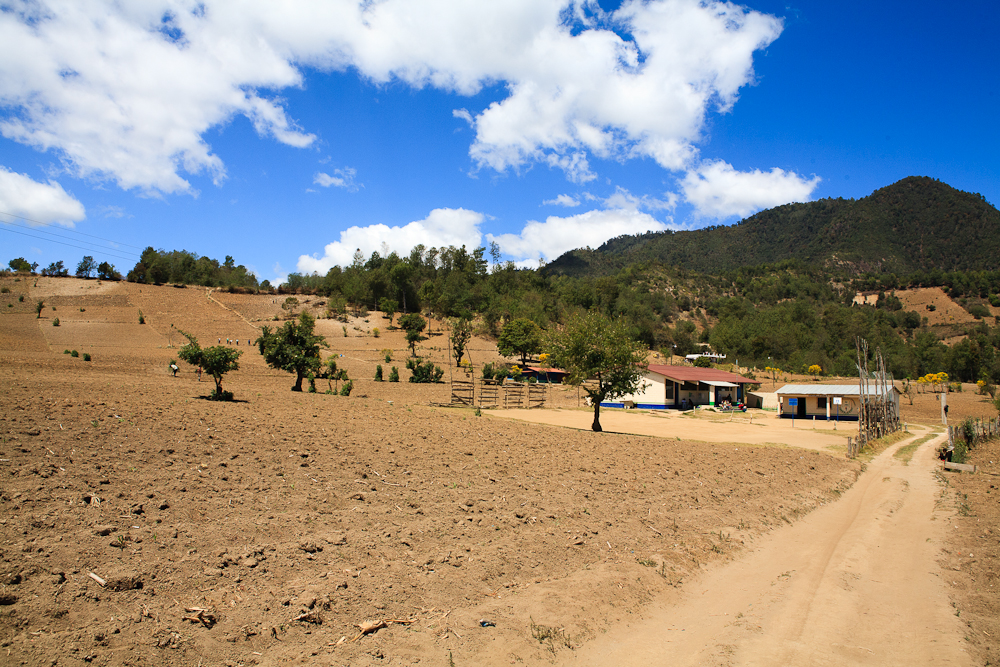Tzantinamit (sawn-teen-ah-MEET) is a tiny village high above Lake Atitlán, in Guatemala. It’s surrounded by dusty fields, forested peaks and a smattering of small adobe houses in various states of disrepair. When we visited last month, the corn had long been harvested, and the fields were barren. It was cold out, and only a few families could be seen working their hillside plots from the dirt road we drove in on.
From afar, Tzantinamit is like any other indigenous village in the Highlands. The school is tiny, no bigger than a garage from the suburban United States, dropped into the middle of a Central American mountain range. There isn’t a paved road in sight.
When we arrived, the school director, a man named José Luís Can Chay, walked out of his unlit classroom to greet us. There is no electricity here. Excited for our visit, Mr. Can smiled warmly, shook our hands and insisted we come with him to see how they set up the new bookshelves and books we provided.
Last month, Tzantinamit began its third year of our Reading for Life program. We provided the books as part of our training program so the teachers would have something to read to their students. Although the children who attend the school are now reading more than they ever have – roughly three times the amount most children read in nearby schools – they still face tremendous challenges. Most will drop out by fifth or sixth grade.
Still, a sense of hope fills the classrooms of this tiny school.

As children and teachers in Tzantinamit continue in our program, lives improve. Parents see progress in the classroom and are beginning to feel school might have real economic benefits for their children. Teachers, for the first time, feel they can actually teach reading effectively. And the kids? Classroom participation and reading levels have soared.
Even if these children only make it through sixth grade, their ability to read and think critically – the two most important outcomes of our program – will help them get living-wage jobs as adults. For families in extreme poverty, even a small advance such as this can put food on the table, pay for medicine or generate enough additional income to improve a plot of land.
We share this story with you because your support is, quite literally, changing people’s lives. In Tzantinamit, we are providing ongoing reading programs for every young student in the village. We’re delivering hundreds of high-quality children’s books and providing continued and intensive literacy training for each of the school’s teachers.
If you are interested in contributing directly to our work in Tzantinamit, or if you would like to hold a fundraiser for this or any other of the more than 50 communities participating in our Reading for Life program, please contact us at 503-720-6686.